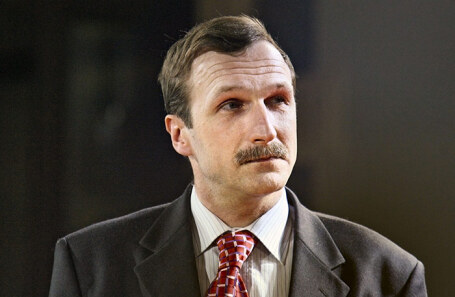Russia requested a meeting of the UN Security Council in order to, as Dmitry Polyansky, Russia’s deputy permanent representative to the UN Security Council, put it, learn more about “ideas that could lead to the beginning of a third world war.”

Polish Foreign Minister Radoslaw Sikorski stated that he does not consider the deployment of NATO troops to Ukraine as something unreal. “I appreciate President Macron’s initiative,” Sikorski said. “The West must carry out a creatively planned and asymmetric escalation.” This is how he commented on French President Emmanuel Macron’s words about sending troops to Ukraine. Kremlin spokesman Dmitry Peskov stated that the European leader’s comments only increase the level of direct involvement in the Ukrainian conflict.
Polish Foreign Minister Radoslaw Sikorski not only supported the idea of the French president about the possibility of sending NATO troops to Ukraine but also added fuel to the fire in the discussion developing in Europe. Speaking at a conference dedicated to the 25th anniversary of Poland’s membership in the alliance, he stated that NATO troops are already present in Ukraine. However, he did not specify in what quantity and quality they are there. Previously, only the UK acknowledged the presence of its military. In small numbers. However, they also did not specify what exactly they are doing there. Meanwhile, leaked conversations of Bundeswehr officers indicate that they may also be engaged in targeting Western weapons towards Russian targets.
Possibly, by escalating the rhetoric, Sikorski is developing his thesis that, well, “Russia must be scared,” thus playing on raising the stakes. In Moscow, it has already been announced that in the event Western troops are sent to Ukraine, a direct military conflict between NATO and Russia is inevitable. Moscow, in this case, makes no distinction in terms of reaction in the event of the deployment of non-combat or combat NATO units. Especially since the path from sending the former to sending the latter can be very short.
Amid the statements of the Polish Foreign Minister, although Prime Minister Donald Tusk had previously taken a much more restrained tone, Paris, in fact, is working towards creating a kind of coalition of NATO countries that are ready to start discussing the topic of sending troops. This coalition to some extent opposes Germany, which categorically denies the possibility of involving alliance countries directly in the Russian-Ukrainian conflict in this way.
French Foreign Minister Stephane Sejourne during his visit to Lithuania discussed the topic of deploying troops with his Baltic colleagues. “Russia should not tell us how we should help Ukraine in the coming months or years. Russia should not set ‘red lines’ for us. We decide this among ourselves,” he said during the visit. However, he clarified that NATO troops may be needed not for combat actions but, for example, for demining. Although everyone understands that minefields are not in the depths of Ukraine but closer to the contact line. This relates to the issue of the possibility of a direct clash between Russian and NATO troops.
Any “limited contingent,” as history shows, has a tendency to grow, and so-called non-combat units can quickly be supplemented with combat units as the conflict escalates. By the way, so far there has been no categorical denial or rejection of Macron’s ideas from the Baltic States. Czech President Petr Pavel, who was initially critical of the French president’s ideas, changed his position in recent days, stating that he also supports exploring new ways to support Ukraine, including the possibility of sending non-combat units. This coalition is gradually taking shape.
In the event of a deteriorating situation for Ukraine on the battlefield, discussions on the deployment of NATO troops will inevitably intensify even further, as Russia’s victory is still considered politically unacceptable in the West.
It is also worth noting that Macron’s rhetoric has changed not only in terms of considering the thought of sending NATO units to Ukraine. For the first time since the beginning of the conflict, he recently stated that Russia must be defeated on the battlefield, whereas earlier he only said that Russia should not be allowed to win. Polish Foreign Minister Sikorski supports him in this. Macron also, for the first time, referred to the conflict as “our war” in relation to Europeans, implying that it is not just “Ukraine’s war.” He actively promotes the idea that Russia poses a direct threat to Europe. French Foreign Minister Sejourne even dared to compare the current situation to 1938, hinting at the “Munich conspiracy” and the fact that this historical mistake should not be repeated.
Against this backdrop, Ukrainian President Volodymyr Zelensky visited Turkey. Feeling the support of Europe behind him, he rejected Erdogan’s proposed idea of holding a peaceful summit on Ukraine with Russia. Instead, accompanied by Defense Minister Rustem Umerov, he discussed the prospects of joint arms production with representatives of the Turkish defense industry and also visited shipyards where the Turks are already building corvettes for the Ukrainian Navy.
In this context, Russia requested a meeting of the UN Security Council in order to, as Dmitry Polyansky, Russia’s deputy permanent representative to the UN Security Council, learn more about “ideas that could lead to the beginning of a third world war.” Unfortunately, all the experience of the UN’s existence shows that this organization has not been able to prevent any serious wars, in general.


